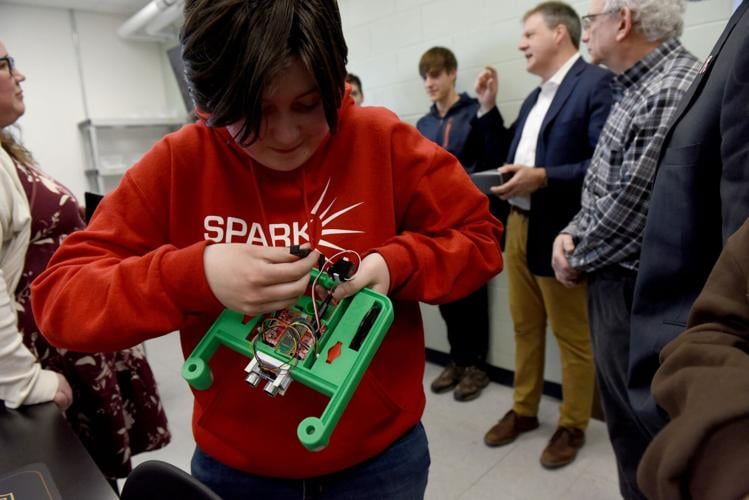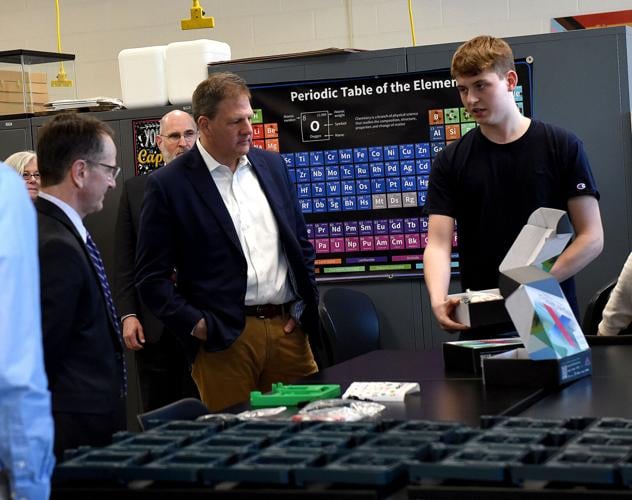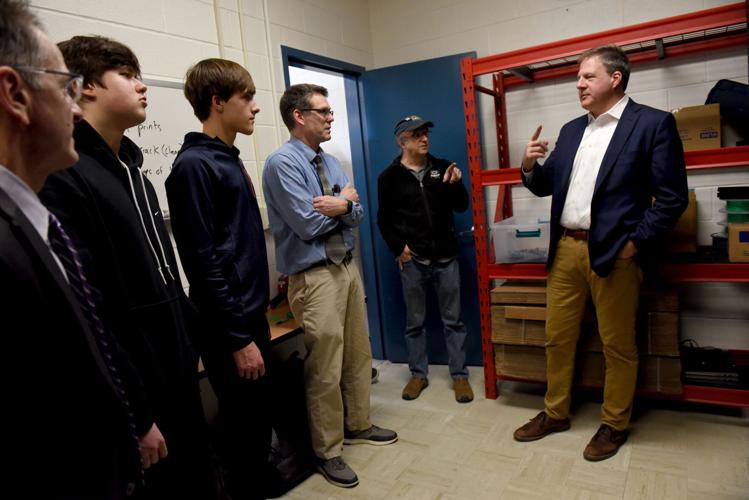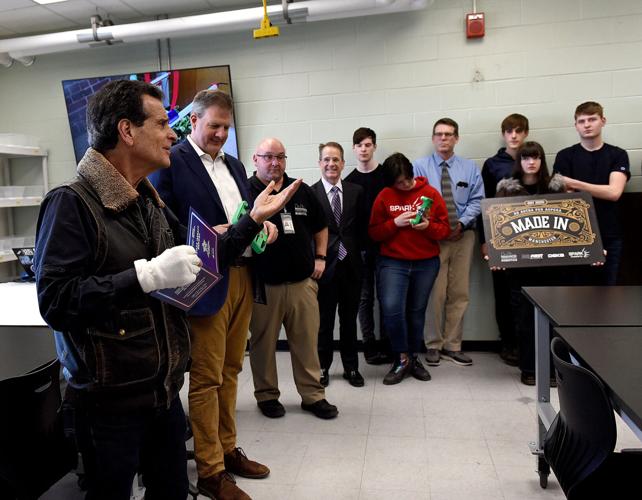MANCHESTER — Inside a small room at Spark Academy of Advanced Technologies, two dozen 3D printers are making 7-inch plastic chassis and wheels that will go into kits with one goal in mind:
Put a robot in every New Hampshire classroom.
Aiden Fournier, one of 22 Spark students working on the project, told Gov. Chris Sununu that he enjoyed working on printing robot parts more than learning in a classroom.
The fact that the kits, which consist of 3D printed and purchased electronic parts, are being rolled out to classrooms across the state is a plus.
“I think that’s pretty cool,” Fournier, 16, who might pursue landscaping or welding as a career, said later.
With less than a half-million dollars in state money, Dean Kamen’s DEKA Research & Development and Worcester Polytechnic Institute are working with Spark Academy and two New Hampshire community colleges on the project.
“Have the students literally build the robots so other students can build the robots,” Sununu said while touring the printing operation at Spark Academy, nestled within Manchester Community College.
Robot kits, partially printed at Spark and at DEKA in Manchester, have made it to students from 180 countries through the FIRST Global Challenge, an international robotics competition and one of Manchester inventor Dean Kamen’s initiatives.
The robots for New Hampshire schools cost around $55 each and will be covered by the state funds.
“You should say they are less than the cost of one of the obsolete textbooks that you buy and nobody even opens and reads,” Kamen said, drawing laughs.
3D print farms will be expanded from two community colleges — Lakes Region and White Mountains — to all seven around New Hampshire. Other states also will be encouraged to establish their own 3D print farms.
“They’re learning part of what engineering is about is manufacturing and as we know, this country’s been suffering lately that kids don’t see the excitement and the opportunity and the benefit of manufacturing,” Kamen said. “When you make it, you understand it.”
David Rodgers, DEKA’s chief development officer, said producing the robot kits would have been more expensive if not done with 3D printing.
“If we had invested in the tooling and the molds to do these injection molds, we would have added about a year to the project and it would have cost maybe as much as a half million dollars to get started,” Rodgers said.
“Just these molds would have cost more than the entire project for the state of New Hampshire — the molds and parts,” Rodgers said.
Plans call for different states to tailor-make their robots to their needs.
John Tuttle, Spark’s director, said the program allows students to learn about manufacturing at an age where they would be barred by law from working in a manufacturing plant.
Dan Larochelle, an MCC department chair as well as a founder and technical consultant at Spark, said 10 teachers were coming in Monday evening to pick up kits and learn more.
“We’ve got to get teachers not scared to teach this technology all the way to the middle schools,” said Larochelle, department chair in advanced manufacturing and a full-time professor at MCC.
State Education Commissioner Frank Edelblut said the state invested less than $500,000 in setting up the program, manufacturing and teacher training.
“To allow these kids to have this hands-on, 21st-century learning is an unbelievable opportunity for them,” Edelblut said in an interview.
The governor expressed surprise at the breadth of the project.
“I personally never envisioned that we would actually be having the students make the products, assemble them together to give to other schools to learn how to use the robots,” Sununu said. “It is true vertical integration with something being learned at every different level. That’s just super-awesome, that is super-cool.”
Sununu later in an interview said students learn about every aspect of development and production for a small price.
“Nothing costs 50 bucks nowadays — and it actually does something,” the governor said.




























